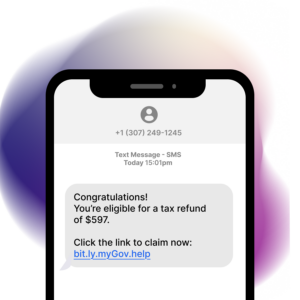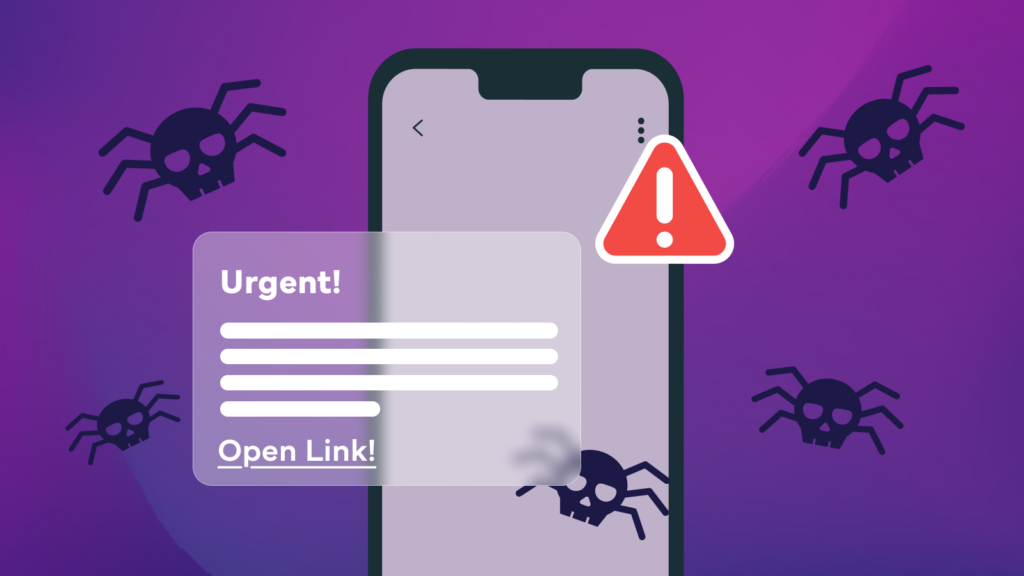You’ve probably heard of phishing emails, and maybe even vishing calls. But what about smishing? No, it’s not a typo or a new sport! It’s phishing via SMS (text messages). And for busy small business owners who are used to quick-fire texts from clients, suppliers, and banks, smishing scams can slip through surprisingly easily.
Key Takeaways:
- Smishing is when scammers send fake text messages pretending to be from a trusted source
- Smishing scams work because they catch you in the moment
- If you get any text messages that are unexpected or that feel a bit off, don’t reply, click links, or call numbers in the message
What is smishing and how does it work?
Smishing is when scammers send fake text messages pretending to be from a trusted source, like your bank, the ATO, or even your delivery service. These messages usually come with a sense of urgency and include a dodgy link or phone number designed to trick you into handing over sensitive info or downloading malware.
Unfortunately, because text messages are often perceived as more immediate and personal than emails, recipients are less likely to question the legitimacy of smishing attempts.
What smishing scams might look like
One of the most common smishing tricks is the fake delivery text. It usually reads something like: “Your parcel is waiting for delivery confirmation. Click here to arrange: [dodgy link].” With so many of us shopping online, it’s an easy trap to fall into, especially if you’re genuinely expecting a package.

Then there’s the infamous “Hi Mum” scam. In this one, scammers pretend to be your child messaging from a “new number,” urgently asking for help—usually cash to replace a lost phone or pay an unexpected bill. Sadly, in 2023 alone, Aussies lost millions to this scam, proving just how effective a little emotional manipulation can be.
Smishing scams like these work because they catch you in the moment, playing on your expectations and your instinct to act quickly. But knowing what to look for is your best defence.
Spotting the red flags of smishing scams
Smishing scams come with plenty of warning signs if you know what to look for:
- Unfamiliar numbers or strange-looking links: If it feels off, it probably is.
- Urgent language: Messages pressuring you to "act now" to fix an issue or claim a prize.
- Requests for sensitive information: Legit organisations won’t ask for passwords or account details via text.
- Messages from contacts claiming their number has changed: Always verify by calling their known number first.
Stay safe from smishing scams
If you get any text messages that are unexpected or that feel a bit off, don’t reply, click links, or call numbers in the message. Instead, go directly to the official website or contact the organisation using trusted details. And make sure your team is clued in too – small businesses are often prime targets because scammers bank on busy people clicking in a rush.

For more tips on keeping your business safe from sneaky scams, enrol in the free Cyber Wardens training program.


































